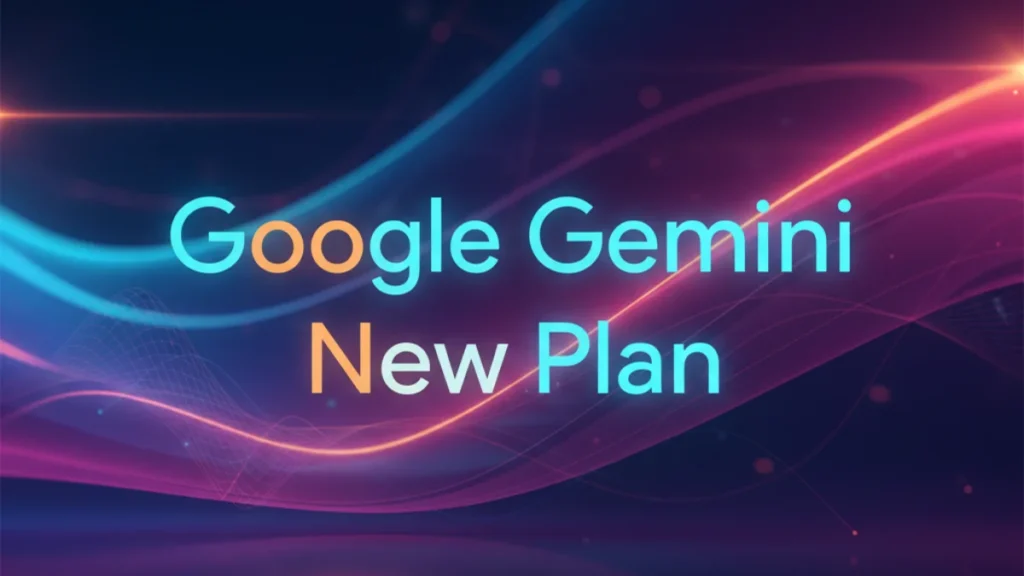Google now hopes nontechnical corporate workers can build AI agents.
As of October 2025, two new Gemini subscription tiers aim to package agent-creation tools, governance controls, and prebuilt agents to help businesses accelerate AI adoption.
Key Takeaways
- Gemini Enterprise ($30/user) and Business ($21/user) let noncoders build AI agents.
- Subscriptions include governance via Model Armor and workflow agents.
- Agents integrate with Box, Microsoft, Salesforce data sources.
- Many large firms are still testing agents—not scaling them.
- Security, compliance, and timely model updates are key enterprise barriers.
Google’s Gemini Enterprise and Gemini Business subscriptions let corporate users build AI agents without coding. Subscriptions bundle governance features (Model Armor), integrations with enterprise tools (Box, Salesforce, Microsoft), and premade agents—designed to ease adoption in organizations wary of security and complexity.
Google’s new bets on enterprise agents
Google is stepping deeper into the business AI space by rolling out two new subscription tiers—Gemini Enterprise and Gemini Business—that let corporate employees build intelligent agents without coding. (Reuters)
Enterprise pricing starts at $30 per user per month; Business is priced at $21 per user. (Axios)
These subscriptions embed Google’s existing Agentspace agent-building capabilities, so companies already using that will be upgraded during contract terms. (Company spokesperson, reported)
Under the hood, the subscriptions include Model Armor, which allows organizations to inspect and block certain chat inputs or outputs for safety and compliance.
What’s inside the bundle
- Prebuilt agents for software development, data science, customer engagement, and more. (Reuters)
- Connectors to enterprise platforms — Gemini agents can draw on data in Box, Microsoft ecosystem, Salesforce, and more.
- Governance and oversight features through Model Armor, letting IT/security teams manage what agents can do.
- No-code agent creation — employees don’t need to write code to assemble, tune, or launch agents.
Essentially, Google is converting its internal and developer-focused tools into packaged offerings for business use.
From Agentspace to Gemini subscriptions
Google’s Agentspace, launched in late 2024/early 2025, has offered enterprises internal search, low-code agent creation, and enterprise data integration (e.g. Confluence, Jira, SharePoint). (Google Cloud blog)
Agentspace brought tools like “Agent Designer” and a gallery of expert agents (Deep Research, Idea Generation) to simplify agent workflows. (Google blog)
The new Gemini subscriptions effectively merge Agentspace capabilities into a higher-level, user-friendly offering tailored for businesses.
They also tie into Google’s evolving Agent Development Kit (ADK), which helps organizations prototype, orchestrate, and deploy agents leveraging Gemini models. (VentureBeat)
One key new element is Model Armor — a governance layer that lets organizations audit, block, or filter certain agent behaviors without building their own custom middleware.
Industry reaction & adoption hurdles
Analysts caution that while many large enterprises are testing agents, few have deployed them at scale. (Gartner analyst Chirag Dekate, quoted)
Security, compliance, governance, and avoiding model lag are top concerns. Dekate says how Google supports updates (say, when Gemini 3.0 arrives) will be a critical test.
Thomas Kurian, CEO of Google Cloud, claims users from telecom, consulting, hospitality, and manufacturing are in trials. He cited Virgin Voyages as an early adopter of Gemini Enterprise.
Large companies want confidence that agents won’t hallucinate, leak data, or fall out of sync with newer models. Google’s bundled governance and upgrade pathways aim to lower those barriers.
Why this matters
Many organizations lack in-house AI talent, so nontechnical access is crucial if agents are to see broad adoption.
If successful, Google could lock enterprises into its ecosystem (Workspace, Cloud, Gemini) in the same way Microsoft has with Office + Azure.
This move deepens competition among tech giants: OpenAI, Microsoft, Anthropic, and others are also pushing agent-centric business tools.
But the road ahead isn’t smooth—agent misuse, bias, security breaches, and regulatory scrutiny loom large. How Google navigates those risks (and ensures model updates) may determine whether this is a breakthrough or a niche offering.
What happens next
- Watch whether Gemini 3.0 is offered seamlessly across the enterprise offering.
- Monitor early results: do businesses truly adopt agents at scale?
- Observe how Google competes with Microsoft Copilot, OpenAI agent frameworks, and vendor-agnostic toolkits.
Conclusion
Google’s Gemini subscriptions aim to make AI agents accessible to everyday corporate workers—with governance baked in. The question now is whether enterprises will buy in—or hold back until more trust is proven.
